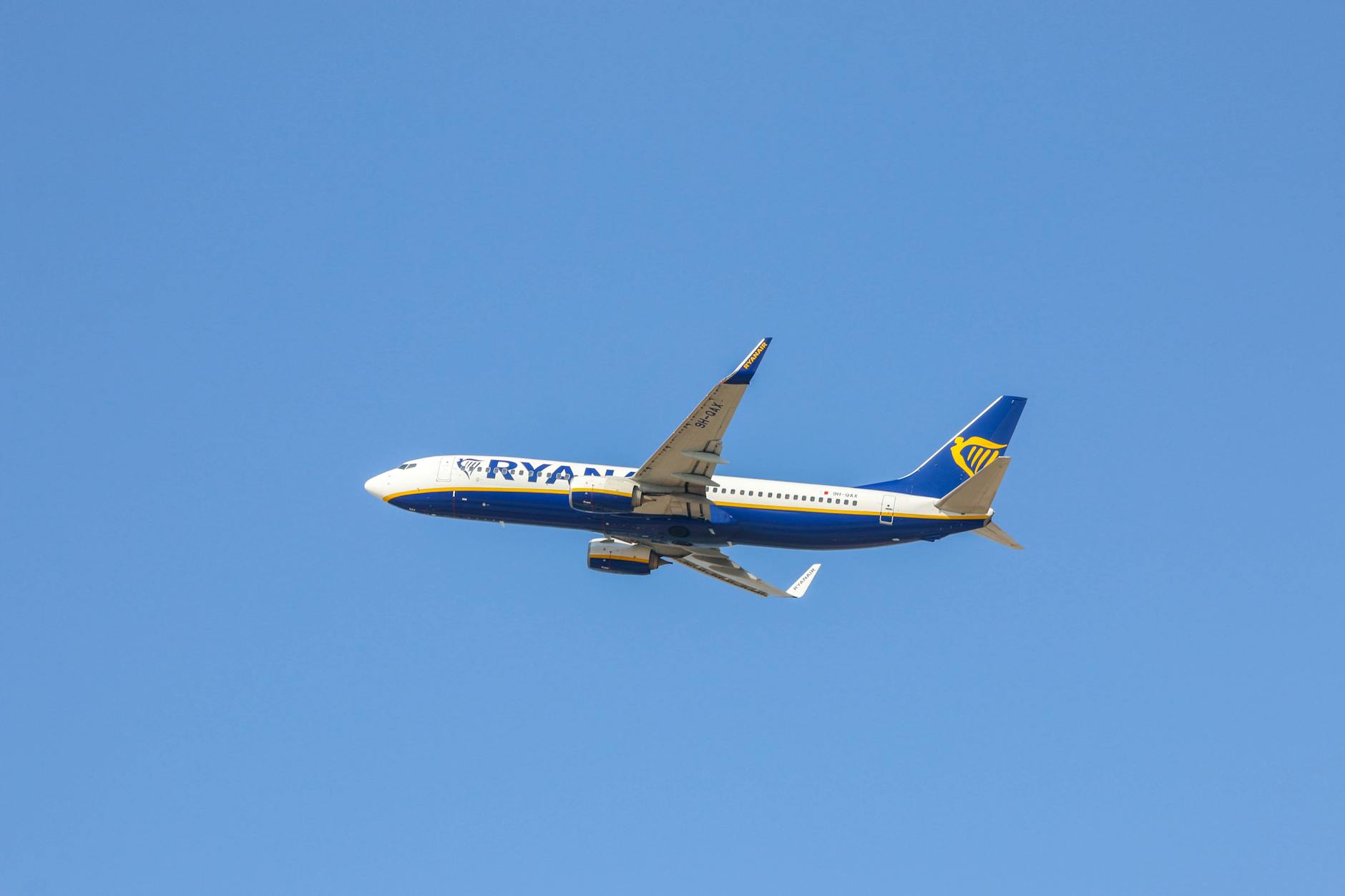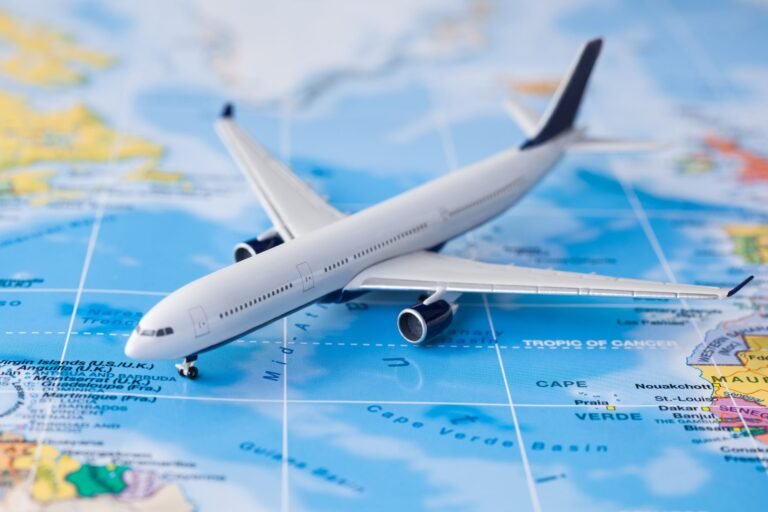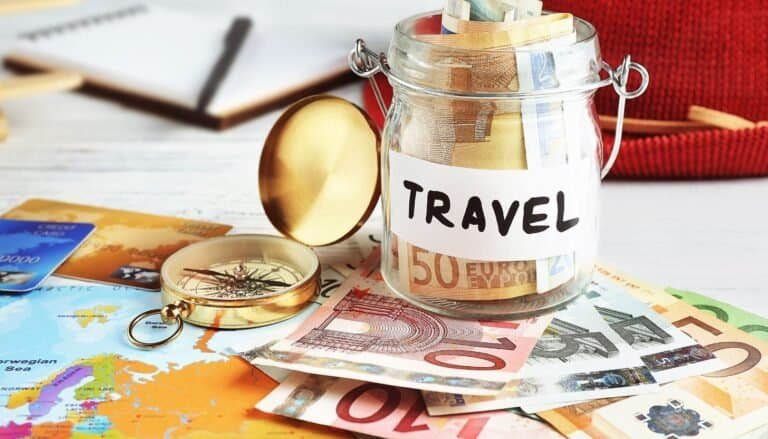21 Best Budget Travel Tips for Beginners

Traveling on a budget is all about smart choices and knowing where to look for savings.
Even if you’re a first-time traveler or just trying to make every dollar count, budget travel is completely within reach.
It’s easier than you might think to discover incredible places, enjoy authentic experiences, and still stick to your budget. budget travel tips will make planning your trip stress-free.
If you are ready to make your next getaway both affordable and unforgettable? Let’s get started with these best budget travel tips for beginners!
Why Budget Travel?
Budget travel is all about embracing creativity to explore more of the world without draining your bank account.
It’s an open door to countless experiences, proving you don’t need a luxury budget to make unforgettable memories.
Even it’s discovering hidden treasures or stretching your vacation days by spending less on each trip, budget travel offers a unique and rewarding way to see the world.
Affordable Adventures Await
Think of budget travel as an adventure in itself. When travelers skip expensive tours and five-star resorts, they often find themselves in the heart of authentic experiences.
A cozy street vendor’s food stall might lead to conversations with locals that unveil little-known spots.
Staying in a lively hostel instead of a fancy hotel? That could mean meeting fellow travelers eager to share off-the-beaten-path recommendations.
These affordable choices often turn into unforgettable moments you’d never find in a glossy travel brochure.
Budget travelers tend to discover joy in the simpler things—like watching a vibrant sunset from a public park instead of an exclusive rooftop bar.
Plus, unconventional transportation options, like night buses or bike rentals, often make journeys as thrilling as the destination itself.
More Travel for Less Money
Picture this: instead of splurging your entire annual travel budget on one luxury vacation, budget travel allows you to spread that money across multiple trips throughout the year.
Isn’t that a win-win? Imagine exploring a bustling European city one month and relaxing on a tropical beach the next—all because you embraced cost-saving strategies.
Through approaching each trip with a budget-friendly mindset, you’ll realize that “travel more, spend less” is not just a catchy phrase; it’s a lifestyle that anyone can adopt.
It’s incredible how much you can explore when you prioritize value over luxury.
Planning Your Budget Trip
Dreaming of that perfect getaway without draining your savings?
Budget travel starts with effective planning, allowing you to explore amazing destinations without unnecessary stress.
Let’s look at how you can plan the ultimate affordable adventure!
1. Setting a Realistic Budget
Picture this: you’re in a foreign city, but instead of enjoying yourself, you’re worried about overspending.
Creating a realistic budget upfront lets you focus on the experience without financial stress.
Here’s how to start:
- List all potential expenses – Find estimates for major costs like flights, accommodation, meals, and transportation. Don’t forget smaller items like entrance fees or souvenirs.
- Prioritize your spending – Decide what matters most. Is it trying authentic cuisines? Staying in budget-friendly lodging? Allocating funds where your heart is will make your trip more meaningful.
- Build an emergency buffer – Life happens, and unexpected expenses can pop up. A reserve fund, even just a small one, can provide peace of mind.
Tools like budget apps or travel expense trackers can help you stick to your plan.
2. Choosing Budget-Friendly Destinations
Not all destinations are created equal—especially when you’re mindful of costs. Some cultures thrive on affordability, while others can surprise you with hidden expenses.
To find the best location for your budget, focus on these considerations:
- Flight Costs – Compare destinations based on cheap route availability. Tools like Google Flights let you scan for affordable options.
- Cost of Living – Southeast Asia, Eastern Europe, or Central America often top the charts for budget travelers, offering affordable accommodation and food.
- Currency Strength – Choose places where your money stretches further. You’ll be amazed at how much value you get in exchange!
3. Seasonal Travel Choices
Did you know your travel timing can drastically affect prices? Choosing the right time of year can make or break your budget. Here’s the deal:
- Off-Season Savings – Popular spots like Europe or national parks skyrocket in price during peak times. Traveling during the shoulder or off-season (hello, autumn getaways!) means fewer tourists and lower costs on everything from flights to hotels.
- Local Discounts – Some museums, restaurants, or tours lower their prices to attract visitors in slower periods.
- Flexible Perks – Off-season often means better availability, so you’ll have more options without the rush!
Timing is everything.
When you’re mindful of cost without compromising on experiences, the world becomes your oyster. Planning ahead lays the foundation for a journey you won’t forget—one that proves travel doesn’t have to break the bank!
Saving on Flights and Transportation
Savvy budgeting extends beyond lodging and meals—it also includes keeping travel and transportation costs in check. Let’s explore how you can save big while getting from Point A to Point B.
4. Booking Hacks for Flights
Photo by RON ROV
Ever heard of the saying, “Timing is everything”? When it comes to finding affordable flights, it couldn’t be more true.
Here are some tried-and-true strategies to help you book flights without busting your budget:
- Use Flight Comparison Tools: Websites like Skyscanner and Kayak are great for comparing prices across multiple airlines. They’re your first step in hunting down the cheapest options.
- Set Price Alerts: This is your watch-and-wait strategy. Platforms like Google Flights allow you to create alerts that notify you as soon as fares drop on your chosen route.
- Book at The Right Time: Studies often show that Tuesday afternoons or mid-week times are best for snagging deals. Don’t wait until the last minute unless you enjoy the thrill of high prices.
- Be Flexible: If your schedule allows, explore different travel dates or even nearby airports. Sometimes, a small change can lead to major savings.
You’ll thank yourself when that extra cash can be spent on unforgettable moments, not airfare.
5. Affordable On-Ground Transportation
Once you land, it’s all about getting around efficiently and affordably. Local transportation is not just a cost-saver; it adds a touch of authenticity to your adventures.
Here are some tips to keep your ground travel expenses low while soaking in the local culture:
- Public Transit is Your Friend: Buses, metros, and trains are often much cheaper than taxis and rentals—and they give you a slice of local life. Think of it as sightseeing on a budget!
- Walking is Free Fitness: Many cities are pedestrian-friendly, allowing you to explore major landmarks on foot. Plus, it’s an excellent way to stumble upon hidden gems.
- Rent Bicycles or Scooters: More and more destinations support eco-friendly travel—usually for just a few bucks a day.
- Travel Passes Add Up: If you’ll be staying for a while, look into transport passes that offer unlimited rides for a fixed period. It saves you both money and hassle.
Each mode of transport offers unique benefits, blending affordability with a richer travel experience. Keep your costs low and adventure high—it’s the balance every traveler dreams of.
Budget-Friendly Accommodations
One of the biggest expenses when traveling is lodging, but it doesn’t have to break the bank. Budget-friendly accommodations are an opportunity to experience something new, meet fellow travelers, and dive into local culture like never before.
Even if you’re prepping for your first trip or looking to cut costs, these affordable options have you covered!
6. Hostels and Guesthouses
Photo by Cottonbro Studio
If you’re traveling solo or with friends, hostels and guesthouses are hard to beat. Not only do they offer some of the cheapest nightly rates, but they also encourage an unbeatable social vibe.
Imagine lounging in a cozy common area, swapping stories with travelers from around the globe, or joining a spontaneous group plan to explore the local scene. Sound fun?
Many hostels even host free or low-cost communal activities, like guided city tours, pub crawls, or movie nights. Plus, shared resources like kitchens allow you to cook and save even more.
Pro tip: Always check online reviews for tidbits about cleanliness, location, and social atmosphere. Apps like Hostelworld are a backpacker’s best friend!
7. House Sitting and Couchsurfing
House sitting and Couchsurfing aren’t just money savers—they turn traditional travel on its head!
With house sitting, you’ll stay in someone’s home for free in exchange for tasks like caring for their pets or garden.
It’s a true win-win: You get comfy accommodations, and they get peace of mind. Platforms like TrustedHousesitters or MindMyHouse are excellent starting points.
On the other hand, Couchsurfing connects you with locals offering a free place to crash—anything from a guestroom to, well, a couch!
Beyond just the economic perk, it’s all about the experience. Hosts often double as your personal guide, sharing insider tips you won’t find in guidebooks.
Who wouldn’t want a shortcut to the most authentic food spots or hidden gems in a city?
8. Budget Hotels and Airbnb Options
For those who prefer a little more privacy but still want to keep it budget-friendly, budget hotels and Airbnbs hit the sweet spot.
Platforms like Booking.com or Expedia let you filter by price, location, and guest reviews, making it easier to find the right fit.
Catch last-minute deals on apps like HotelTonight—perfect for spontaneous adventurers.
When choosing Airbnbs, look for shared spaces (like private rooms in someone’s home) instead of splurging on an entire property.
Hosts can also provide useful local recommendations, giving you a touch of the Couchsurfing experience but with your own space.
Eating Well on a Budget
Eating while traveling can often feel like a hidden cost, quietly piling on additional expenses.
But with some thoughtful choices, you won’t just save money; you’ll also immerse yourself in cultural experiences, stay nourished, and maybe even learn a thing or two about local flavors.
Let’s uncover a few simple strategies to make eating on a budget an adventure in itself.
9. Street Food and Local Markets
Nothing says authentic like indulging in street food! Local markets and food stalls have lots of affordable and mouthwatering dishes.
Whether it’s samosas in India, tacos in Mexico, or crepes in France, you get to taste the soul of a destination without paying restaurant prices.
Plus, walking through crowded markets is an experience in itself—alive with colors, smells, and sounds that paint a snapshot of the culture.
Why hit up street food? First, it’s budget-friendly. The prices are hard to beat, often offering generous portions for just a few dollars.
Second, it’s fresh. Many vendors cook right in front of you, letting you see exactly what goes into your meal.
Not sure where to start? Ask a local or follow the busiest stalls—you won’t regret it.
10. Cooking Your Meals
Cooking might not sound like “vacation fun,” but it’s one of the biggest ways to shave dollars off your travel budget.
Staying in accommodations with a kitchen or kitchenette lets you prepare your meals affordably and even branch out culinary skills with local ingredients.
Consider this: a single sit-down restaurant meal can cost as much as groceries for three days.
Simply whipping up breakfast or packing sandwiches for an outing, can help you save considerably.
Large supermarkets often have prepped meals or ready-to-cook options that are both affordable and convenient.
Here’s why making your meals is a smart choice:
- Cost-Saving: Groceries are almost always cheaper than eating out.
- Diet Control: Stay mindful of preferences or dietary needs without relying on restaurant availability.
- Cultural Experience: Shopping for ingredients allows you to step into local life—browse spices, chat with sellers, and maybe even get recipe tips.
11. Finding Deals at Restaurants
Eating out doesn’t have to blow your budget, especially if you master the art of timing and deal-hunting.
Many restaurants offer lower-priced menus during happy hours or lunch specials.
Street-side cafés, small diners, or hole-in-the-wall spots are often cheaper than establishments catering primarily to tourists.
Tap into technology:
- Food Apps: Apps like Yelp or Zomato can point you toward highly-rated budget eateries. Some even have special discounts or offers.
- Happy Hours: Many cities have thriving happy-hour scenes, with discounted drinks and menu items during late afternoons or evenings.
- Ask Locals: Don’t hesitate to chat up your bartender, hostel host, or local guides. They often know delicious places that won’t empty your wallet.
Eating doesn’t have to be a major expense when traveling—it can be one of the most enjoyable aspects of your journey! With these tips in mind, you’ll discover how easy and rewarding it is to eat well without breaking the bank.
Packing Smart for Budget Travel
Packing well is the secret ingredient to a smooth and affordable adventure.
The lighter your bag, the easier your travels, and the fewer fees you’ll face along the way. But how exactly do you pack smart for budget travel? Let’s dive in.
12. Packing the Essentials
First: packing essentials. A well-packed bag is your best friend, and overpacking is its evil twin.
Sticking to items you’ll genuinely use can save you the headache of extra weight and the cost of paying for checked luggage.
Here’s a core list to guide you:
- Travel-friendly clothing: Choose lightweight, moisture-wicking materials—bonus points for items that don’t wrinkle easily.
- Reusable water bottle: Opt for a collapsible one to save space.
- Basic toiletries: Stick to travel-sized versions or solid alternatives like shampoo bars to comply with airline regulations.
- Electronics & adapters: One universal adapter can eliminate the need for carrying several chargers.
- Travel documents: Passport, ID, vaccination cards, and printed copies of your itinerary (because technology can fail).
Packing cubes or vacuum-seal bags are game-changers for keeping everything organized and compact.
13. Multipurpose Items
Why bring five things when one can do the job? Smart travelers know that multipurpose items aren’t just space-savers—they’re budget saviors, too.
Here are some MVPs of multipurpose travel tools:
- Travel scarf or sarong: Use it as a blanket on chilly flights, a beach towel, or even an emergency outfit layer.
- Multi-tool gadget: A compact, Swiss Army-style tool can handle everything from opening bottles to repairing zippers.
- Convertible backpack: It doubles as both a carry-on and a day bag.
- Solid toiletries: Think soap bars that can double as a body cleanser and laundry soap.
These dual-use items spare you the need to buy extras on the go, meaning more funds for the fun stuff.
14. Avoid Overpacking
Most of us pack way more than we actually need. The result? Bags bursting at the seams, fees at the check-in counter, and stress every time you pack.
Choosing minimalism makes travel cheaper, easier, and way more enjoyable.
Here’s why you should opt for less:
- Save on baggage fees: Airlines often charge for checked bags, but a compact carry-on can save you $50+ per flight.
- Flexible movement: Imagine breezing through the airport or hopping on crowded buses with just a backpack.
- Less to lose: Fewer items mean fewer chances of forgetting or misplacing your stuff.
Free and Low-Cost Activities
Sometimes, the most memorable travel experiences don’t cost a dime—or just a few dollars!
Stretch your travel budget further by making the most of activities that are free or wallet-friendly.
Trust me, these options won’t shortchange your adventure; in fact, they’ll often connect you with the heart and soul of a destination!
15. Exploring Free Attractions
Photo by RDNE Stock project
Who said you need to spend big to enjoy travel? Cities and towns worldwide are brimming with free attractions that showcase history, nature, and local charm.
Check if the town you’re visiting has museums with free-entry days—these are perfectly timed opportunities to soak in culture without spending a cent.
Got a sunny day ahead? Natural parks and scenic hiking trails offer breathtaking views at no cost, making them a constant favorite for budget travelers.
Pro tip: Many local events, from summer concerts in the park to weekend art fairs, are totally free to attend.
You just need to know where to look! Curious about free activities that bring destinations to life?
16. Walking Tours and Local Meetups
Exploring like a true local is easier (and cheaper!) than you think.
Walking tours, often run by passionate guides, let you get the lay of the land while learning about the stories that shaped your destination.
Many major cities offer free walking tours—although tips for the guides are encouraged. Even better, these tours often reveal hidden gems you wouldn’t spot on your own.
You can also dive into local communities with meetups or free group activities. Apps like Meetup and Facebook are great places to find free or low-cost activities like language exchange nights, trivia games, or local hikes.
It’s a brilliant way to blend in and possibly make lifelong friends.
Tech Tools for Budget Travelers
Traveling smart starts with having the right tech tools to keep you organized, connected, and, most importantly, within budget.
Today’s technology offers incredible resources that make managing your travel expenses, finding affordable deals, and navigating foreign lands easier than ever.
Let’s break down some must-have tools that every budget traveler should consider.
17. Travel Budgeting Apps
Photo by Tima Miroshnichenko
First things first: keeping track of your expenses while traveling can make or break your budget adventure.
Thankfully, you don’t have to manually log every dollar spent when apps like Trail Wallet and Spendee exist.
These gems let you log expenses in real-time, categorize your spending (meals, lodging, transportation, etc.), and even visualize where your money is going with sleek charts.
Another lifesaver? Currency conversion apps like XE Currency or Currency Converter Plus.
They provide up-to-date exchange rates and help you avoid overspending due to unfamiliar currencies. A quick tap saves you from mental gymnastics at the market!
Make it easy:
- Set spending limits. Most apps allow you to set daily budget limits and notify you when you’re nearing the edge.
- Keep it synced. Some options even let you sync your data across devices, perfect for group travel.
18. Accommodation and Flight Deal Finders
Nobody wants to overpay for flights or accommodations, right? Thanks to deal-finder apps, you won’t have to.
Skyscanner and Google Flights are your go-to tools for hunting affordable airfares.
They’ve got advanced filters that let you track price drops and even explore the “cheapest month” for your planned destinations.
For lodging, Airbnb and Hostelworld remain budget-friendly staples.
But new players like Couchsurfing (for staying with locals, often free!) or TrustedHousesitters (home-sit in exchange for pet care) are taking affordable accommodations to a whole new level.
Here’s the secret sauce:
- Compare flight prices across nearby airports, or toggle the “anywhere” destination on Skyscanner to discover surprise cheap options.
- Use last-minute booking apps like HotelTonight for discounted rates on same-day stays.
19. Offline Maps and Translation Tools
Stuck without Wi-Fi? Don’t panic. Offline apps like Google Maps Offline allow you to download maps of an entire area, so you’ll never get lost—even in the most remote places.
Imagine exploring narrow streets in a tiny village worry-free!
For communication in non-English-speaking countries, apps like Google Translate with its offline mode, or iTranslate, can be life-savers.
Some apps even offer visual features, allowing you to point your camera at signs or restaurant menus and instantly translate text—like having a multilingual pocket guide!
Why use these tools?
- No roaming charges. Offline maps won’t drain your wallet with unexpected data fees.
- Smooth cultural interactions. A quick translation tool helps you connect better, whether ordering a meal or asking for directions.
Safety Tips for Budget Travelers
Traveling on a budget is an exhilarating way to experience the world, but it’s equally vital to prioritize your safety.
After all, keeping your belongings and yourself secure is the foundation of an enjoyable trip.
Even if you’re carrying just a backpack or navigating unfamiliar areas, these tips are designed with you in mind.
20. Secure Your Belongings
Photo by Thể Phạm
When you’re traveling on a budget, every belonging feels extra precious—your passport, a cheap phone, or even the small stash of cash neatly tucked in your pocket.
Keeping those items safe doesn’t have to cost a fortune, but it does require a little extra thought and preparation.
Here’s how to up your security game:
- Portable Travel Safes: These lightweight, lockable pouches are a lifesaver. Use them to stash your valuables and secure them to a fixed object in your hostel locker or hotel room. Look for options that are water-resistant and durable.
- Travel Locks: Whether it’s locking your backpack zippers or securing luggage during transportation, small combination locks can be your best friend. Choose TSA-approved models for checked bags or train travels.
- Keep It Minimal: Need a surefire way to lessen your worries? Don’t carry expensive-looking gear or make it obvious you’re packing valuable electronics. Aim for subtlety in both your packing and your behavior—you’ll make yourself less of a target.
21. Stay Connected
Staying connected isn’t optional—especially for safety—you’ll need affordable tools to keep in touch.
From telling family you’re safe to navigating confusing streets, ensuring access to your phone or Wi-Fi can spare you countless headaches.
Here’s how to keep connectivity affordable:
- Local SIM Cards: Planning to stay abroad for a few weeks or more? Picking up a local SIM card is often the cheapest way to use data. Not only will you get lower rates, but you’ll have local coverage that trumps international roaming.
- Portable Wi-Fi Devices: For those splitting costs with travel companions or needing heavier internet access, renting or purchasing a portable Wi-Fi hotspot might be the way to go. Look for devices that charge per day and support multiple connections.
- Download Before You Go: Cut back on data usage by downloading Google Maps offline or saving essential documents to your phone. This way, even if service fails you, you’re prepared.
Remember, a little precaution goes a long way when traveling on a budget.
Even if you’re locking down your valuables or ensuring you’re only a call away from help, smart decisions let you focus on the adventure ahead.
Final Thoughts – budget travel tips for beginners
Traveling should no be expensive or overwhelming—starting with smart, budget-friendly habits opens the door to unforgettable experiences without the fear of draining your savings.
Through using creative strategies like finding cost-effective flights and exploring free local gems, you’re setting the stage for trips filled with meaningful adventures.
Don’t wait for the “perfect” moment—turn those tips into your next affordable journey.
Share this guide with friends ready to explore, and join the Tripping Eagle community for exclusive travel tips, deals, and insider hacks.
Let’s show the world that incredible adventures are possible on any budget.
Ready to uncover more travel hacks and affordable travel ideas? Subscribe now to explore more ways to make your travels unforgettable!















